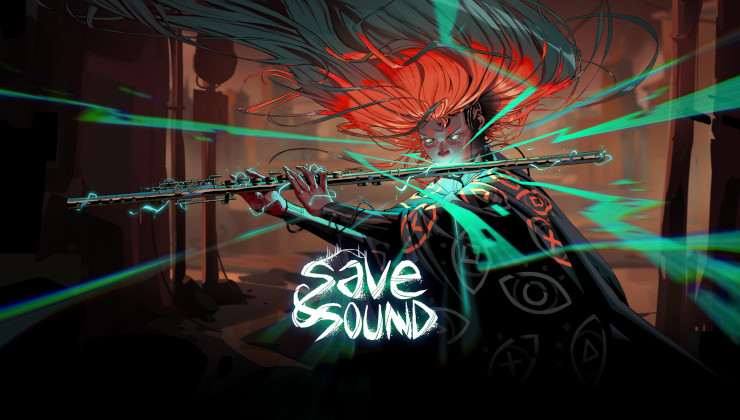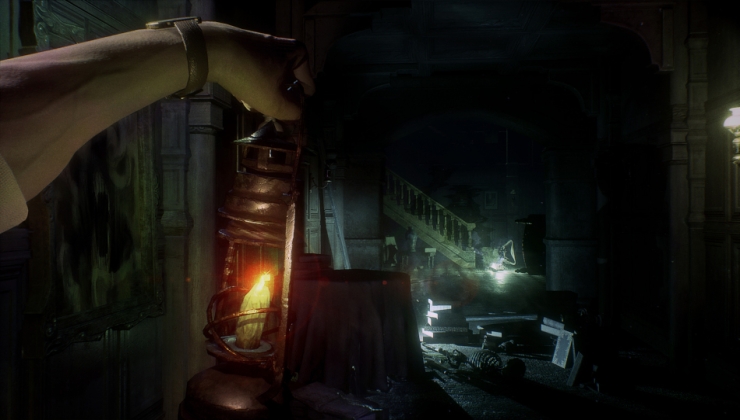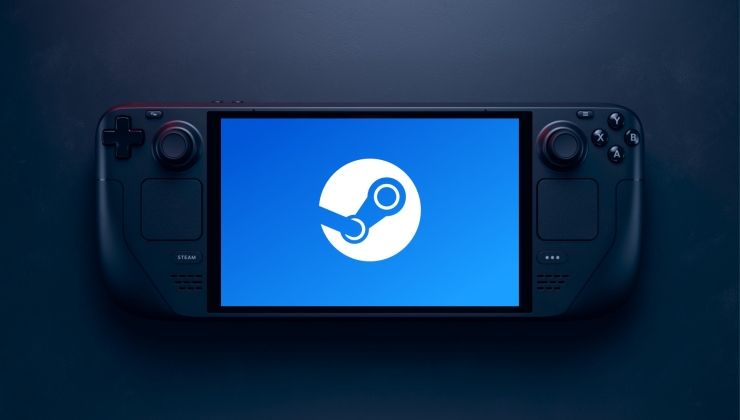GOG aren't having the best of times recently, with details about their financial troubles painting a bleak picture, although it seems they have something of a plan. Later they announced some changes, including a tweak to what they mean by DRM free.
Now? They're attempting to go back to their roots, at least little, to woo customers back to their store with a small revival of "Good Old Games", what they were originally known as. The start of this is the addition of a Good Old Games tag, which GOG say will "showcase over 500 games that our Team has deemed iconic classics".
This is one reason I liked GOG originally, their commitment to bringing back and supporting old games, but they lost their way somewhat when trying to become just another store. Hopefully they will be doing more as time goes on to revive old games. Plenty of older games nowadays can run on Linux just fine through all sorts of open source game engines, and having an easy and legal place to get them for the data files is great.
To go along with this announcement, today they released the classic FPS, The Wheel of Time. GOG say this was done in cooperation with Nightdive Studios and that the "efforts and in-house expertise of GOG’s Tech Team the game received modern OS compatibility and hi-resolution support". Although, by modern OS, they only mean Windows specifically.
Quoting: GuestQuoting: NociferOh please, you don't need to patronize me; I know full well the difference between the two. I was mostly using the word "hate" for emphasis (you know how the internet can be about these things) but still, I wouldn't describe GOG's behavior as merely "not supporting". Enough has already been said about it and the article is kind of old, so I'll not elaborate further, but I'll just add that in my eyes (and I'm a developer by profession, so I have at least a modicum of the required knowledge to have an opinion on this) developing Wine wrappers and providing patches to make Windows-only games run on Linux, as well as providing the after sales support that comes with that, is MUCH less economically viable than simply developing your utility library to be OS agnostic so it can run on Linux.
So in fewer words, GOG's stance on supporting Linux is almost actively hostile (that's probably a better word than 'hate' because it's also commonly used in business-speak) and I fully expect that unless something big happens (e.g. change of leadership) this will only become worse, if only as a byproduct of their competitive strategy against Valve and Steam (which also includes the new partnership with Windows-centric Epic).
Well, I'm a developer by profession who has also been in various discussions about supported platforms. I know the development side, and I know the accounting side to a degree. I also know the support side and how much extra effort is required when first trying to determine the customer's setup (GNU/Linux users who know their way around the system very well are by and large very helpful and can reduce support effort - but those who aren't can make up the difference and then some).
Anyway, I know it's old topic raising its head, but GOG galaxy is different to what GOG do to have old games running. Most of their (original) business needed to supply wrapper libraries to have old games running on modern Windows. There's a mac version of galaxy, so no doubt it's fairly well OS agnostic. No doubt they had plans for a GNU/Linux release too, and yes I think they should have done that just because it's the platform I use - but to go ahead with it now makes no sense. Too much else already takes care of it in my view.
I think we'll disagree - I don't see them as actively hostile, just not interested instead.
Well, it seems that apart from the hostility thing we mostly agree on the important stuff, so I think I can live with that :)
Though I also disagree with the "now it doesn't make sense" part - why do you think that it doesn't make sense? I think it would be good from a PR perspective ("we're DRM-free and we support the prime DRM-free OS because we're THAT cool a company"), it would be good from a marketing perspective (through the Steam Deck, which is all the rage these days, GOG could be exposed to many people, especially of the younger generation, who may not know or care much about it) and it would be good from a technical perspective (it would remove the need for custom Linux/Wine wrappers, because it would take advantage of Proton in the case of a Linux GOG Galaxy client, or Lutris etc in the case of a galaxy.so library meant to be used independently - in the latter case they could even look into making a deal with a third-party UI tool like Lutris to provide official endorsement and maybe support).
I mean, they would stand to gain in more than a few ways and with minimum effort and financial investment (because most of the required work has already been done by others for them), which in my eyes sounds more than good. All it would take is a bit of re-organizing their company around this kind of Linux support, and of course having the will to do it.
I could understand that now it maybe isn't possible for e.g. financial reasons, but not make sense? I just don't see it, especially with Linux popularity being on the rise.
Quoting: CFWhitmanQuoting: Purple Library GuyIMO, the first one is really very good, although it should be noted that the plot is very much Lord of the Rings reheated.I can't agree with this. They are both high fantasy. There are parallels with some of the creatures (though other books just use the same creatures that LotR does, since they are basically unaltered from European mythology). As far as the plot goes, the hero of each comes into danger from dark forces and has to leave home to fulfill a quest, and that's pretty much where the similarity ends. That's quite generic as far as high fantasy goes. Don't get me wrong. It's definitely the same type of book as LotR, but it does not have the same plot in any but a very, very general way.
I guess it's a matter of perspective, or maybe attention to detail (though you seem to be a very detail-oriented person yourself), but as I also said in my previous comment, WoT #1 in my eyes is plot point to plot point a case of almost-plagiarism when compared to LoTR.
Everything from how the kid gets recruited/involved in the story, to how the supporting good guys are the equivalent of Gandalf and Aragorn, to how the group has to pass through the Moria-equivalent where now only shadows dwell, to how they're being hunted by the equivalent of the Nazgul, to how the kid gets separated from the good guys and then goes through his own adventures with his friends, to how his friends achieve some kind of secondary recognition of their own, to how the good guys live in an equivalent of a Gondor which oversees an ancient fence around the equivalent of a Mordor, to how that fence is about to fail because the Gondor lookalikes have grown too negligent and/or weak to fulfill their duty, to a multitude of other, both major and minor plot details and devices, character arcs and development, world details and history, or what have you - all these are in one way or another picked up directly from LoTR.
The most significant plot differences I can think of off the top of my head is that Gandalf is a chick and there's also a second chick as a romance option for Frod-- err, sorry, for what's-his-name, you know, the kid who isn't Frodo.
Quoting: NociferI guess it's a matter of perspective, or maybe attention to detail (though you seem to be a very detail-oriented person yourself), but as I also said in my previous comment, WoT #1 in my eyes is plot point to plot point a case of almost-plagiarism when compared to LoTR.
I still don't see it that way. I see the similarities as those of general world building and not plot.
Quoting: NociferEverything from how the kid gets recruited/involved in the story,
Except that Frodo is not a kid (he's 33 when he receives the ring and 50 when he leaves on his quest) and he gets involved in the story because of an object left to him, while Rand is around 18 and is involved because he is a person prophesied about. What makes Frodo special is his incorruptibility and no ambitions of power (and having the ring in his possession) while what makes Rand special is that he has the potential to be the most powerful person alive inherent to his being. Frodo knew Gandalf for years while Moiraine was a complete stranger to Rand.
Quoting: Nociferto how the supporting good guys are the equivalent of Gandalf and Aragorn
A "magic" user and a warrior; call the plagiarism police.
Quoting: Nociferto how the group has to pass through the Moria-equivalent where now only shadows dwell
I think this is a bit of a stretch. On a quest they go through a dangerous place; that's not unique, and they go there because the danger there is different than the danger pursuing them, and the things pursuing them are afraid to enter that place.
Quoting: Nociferto how they're being hunted by the equivalent of the Nazgul,
I see the general similarity of the Myrddraal to the Nazgul, at least as hooded black figures of evil who carry swords. I think similar creatures are more a setting than a plot point, though. There are also big differences between Nazgul and Myrddraal (Myrddraal aren't nearly as special and don't have a particular limit in number). In a sense the Forsaken are closer to an equivalent of the Nazgul, though they are nothing like them in appearance.
Quoting: Nociferto how the kid gets separated from the good guys and then goes through his own adventures with his friends, to how his friends achieve some kind of secondary recognition of their own,
This is hardly unique to these two books. That's part of almost any quest based story.
Quoting: Nociferto how the good guys live in an equivalent of a Gondor which oversees an ancient fence around the equivalent of a Mordor, to how that fence is about to fail because the Gondor lookalikes have grown too negligent and/or weak to fulfill their duty
This is again a stretch. There is no fence or even natural barrier around the Blight, and it can ebb and flow in size. There is no negligence by the residents of Fal Dara and their fighting with the forces of the shadow is just a necessity to live where they live, but they are not alone in being at the edge of the Blight, they are just the nearest still inhabited city to where the Eye of the World is. The Blight is expanding because the bonds on the Dark One's prison are weakening, not because anyone is failing their duty.
There are many difference in plot. The Eye of the World is neither where the group was originally headed nor their ultimate goal. The Eye of the World has a heroic guardian and is a place of refuge in the Blight. They happened to meet up with a character who has no equivalent in The Lord of the Rings that warned them about a problem there and joined their quest, of which the Eye of the World is only the first leg. The details of the plot differ in many ways, and are only similar in very general ones. The general similarities make The Eye of the World fairly formulaic. I won't argue with that, but the similarities are general. Just about any story of someone who seemed of no particular significance that goes on a quest will have similar ones. In fact, it would probably be easy to find a video game plot that had at least as many similarities to The Eye of the World as The Lord of the Rings does, especially since video games are about the hero, perhaps reluctantly, pursuing power, like The Eye of the World, and very unlike The Lord of the Rings. You could easily take the whole collection of The Wheel of Time and draw just as many similarities to the story as a whole as to the first volume.
Last edited by CFWhitman on 18 April 2022 at 11:37 am UTC






See more from me